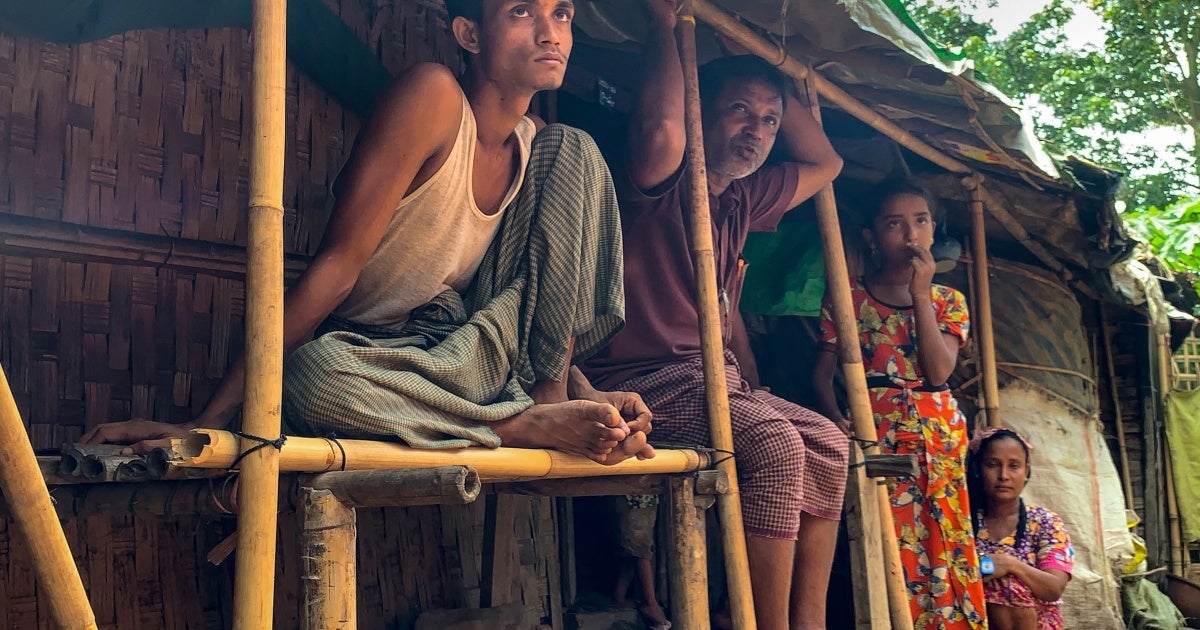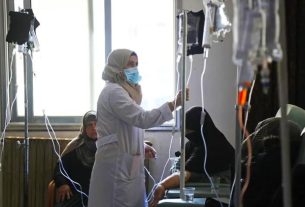(Bangkok) – The Myanmar military has abducted and forcibly recruited more than 1,000 Rohingya Muslim men and boys from across Rakhine State since February 2024, Human Rights Watch said today. The junta is using a conscription law that only applies to Myanmar citizens, although the Rohingya have long been denied citizenship under the 1982 Citizenship Law.
Rohingya described being picked up in nighttime raids, coerced with false promises of citizenship, and threatened with arrest, abduction, and beatings. The military has been sending Rohingya to abusive training for two weeks, then deploying them. Many have been sent to the front lines in the surging fighting between the junta and the Arakan Army armed group, which broke out in Rakhine State in November 2023, and a number have been killed and injured.
“It’s appalling to see Myanmar’s military, which has committed atrocities against the Rohingya for decades while denying them citizenship, now forcing them to fight on its behalf,” said Shayna Bauchner, Asia researcher at Human Rights Watch. “The junta should immediately end this forced recruitment and permit Rohingya unlawfully conscripted to return home.”
Human Rights Watch documented 11 cases of forced recruitment, drawing on interviews with 25 Rohingya from Sittwe, Maungdaw, Buthidaung, Pauktaw, and Kyauktaw townships in Rakhine State and in Bangladesh.
On February 10, the military activated the 2010 People’s Military Service Law, enabling the conscription of men ages 18 to 35 and women ages 18 to 27 for up to five years during the current state of emergency. The announcement followed months of increased fighting with ethnic armed groups and resistance forces.
The junta announced that conscription would start in April, with a monthly quota of 5,000, but the authorities in Rakhine State began forcibly recruiting Rohingya in early February.
In late February, the military abducted over 150 Rohingya in raids on villages in Buthidaung township, according to people interviewed, Rohingya activists, and media reports. A 22-year-old Rohingya man said that light infantry battalion soldiers abducted him and 30 other young men and boys at gunpoint at about 11 p.m. on February 25 in Buthidaung town.
“The youngest boy taken away with us was 15 years old,” he said. “There were three recruits under 18 among us. After we were apprehended and taken to the military battalion, we saw the list of Rohingya who were going to be recruited. All the Rohingya youths in the region were included.”
Further raids took place in Maungdaw township in March. A 24-year-old Rohingya man who was abducted with about two dozen others from Ka Nyin Tan village said the officers told them, “Protecting Maungdaw is upon you.”
An estimated 630,000 Rohingya remain in Rakhine State under a system of apartheid and persecution, including about 150,000 held in open-air detention camps. Since the February 2021 military coup, the junta has imposed severe movement restrictions and aid blockages on the Rohingya, increasing their vulnerability to forced recruitment.
Rohingya camp management committee members said that junta authorities have been tallying “eligible” Rohingya or compelling the committees to make lists. Two members said when they tried to refuse, junta authorities further restricted movement in the camps and threatened mass arrests and ration cuts. “We had no other option,” one committee member said.
At meetings in camps in Sittwe and Kyaukpyu, junta officials promised to issue all forced recruits pink citizenship cards, reserved for “full” citizens. “In the meetings, officers picked up their citizenship cards and told people, ‘We will give you this type of ID card if you join the military service,’” a camp management committee member in Thet Kae Pyin camp said. “People believed them.” Authorities also promised 4,800 kyat (US$2.30) a day and two sacks of rice.
About 300 Rohingya from the Sittwe camps were sent to two weeks of military training in late February. Upon completion, the military gave the forced recruits 50,000 kyats ($24) but no citizenship cards. “When the junta broke their promise to issue citizenship cards to the first 300 Rohingya recruits, people stopped believing them and started avoiding the recruitment campaigns,” a camp management committee member said. Rohingya in the Sittwe camps said that for the second round of forced recruitment, the few hundred Rohingya were taken at gunpoint in raids.
Officials have also threatened to beat Rohingya to death if they refuse to join or to punish their families if they fled.
Many young Rohingya men have tried to escape Rakhine State or gone into hiding in the jungle to escape forced recruitment. The authorities rounded up and beat about 40 Rohingya from Kyauk Ta Lone camp when their family members ran away, according to Radio Free Asia.
The 22-year-old man described the military training as a brutal two-week period under constant harassment, with trainees forced to dig bunkers and split wood, with limited food and water. “We became weak within a few days,” he said. “Some recruits fell unconscious. Three of us were bleeding from our mouths and noses. The military officers used abusive language, called us ‘kalar’ [a slur for Muslims], and degraded our mothers and sisters. Those 12 days felt like 12 years of our lives.”
He witnessed numerous groups of forcibly recruited Rohingya arriving at the cantonment. He was ultimately able to escape, the only one from his ward to do so: “Of us 31, no one else has been released to this day.”
The forcible recruitment campaign has already resulted in casualties. After their training, 100 Rohingya from the Sittwe camps were sent to fight on the front lines in Rathedaung. Five were killed in fighting and 10 were seriously injured, one of whom later died, according to family members and camp leaders. The military authorities promised the families compensation of a million kyat ($476) and two sacks of rice. The five bodies have not been returned.
While 43 forced recruits later returned to the camps, there has been no news from the remainder. “We still don’t know their whereabouts,” a camp leader said. “We don’t know if they’re still alive.”
“They tricked my son into the military,” said the mother of a man who was killed. She said:
They took him to do electrical work, then forced him into the training. Now he’s dead because he was sent to war. They didn’t let us see the bodies. I couldn’t touch my son one last time. When he was taken away, his wife and I followed. He was held at a nearby cantonment for a few hours and we were able to talk to him from outside the fence. Then they were brought to a car. That was the last talk. He was crying.
Conscription without previous legal authorization is a form of arbitrary detention in violation of international human rights law, and the treatment of those forcibly recruited may amount to cruel, inhuman, or degrading treatment. The Optional Protocol to the Convention on the Rights of the Child on the involvement of children in armed conflict, which Myanmar ratified in September 2019, prohibits the forced recruitment, conscription, or use of anyone under 18 in armed conflict.
On March 18, United Nations Secretary-General António Guterres expressed his concern about “reports of forcible detention and recruitment of youths, including Rohingya, and the potential impact of forced conscription on human rights and on the social fabric of communities in Myanmar.”
“The Myanmar military’s forced recruitment of Rohingya men and boys is its latest exploitation of a community made vulnerable to abuse by design, over decades of oppression,” Bauchner said. “Concerned governments should be strengthening avenues to justice to hold junta leaders accountable for their abuses, past and present.”



